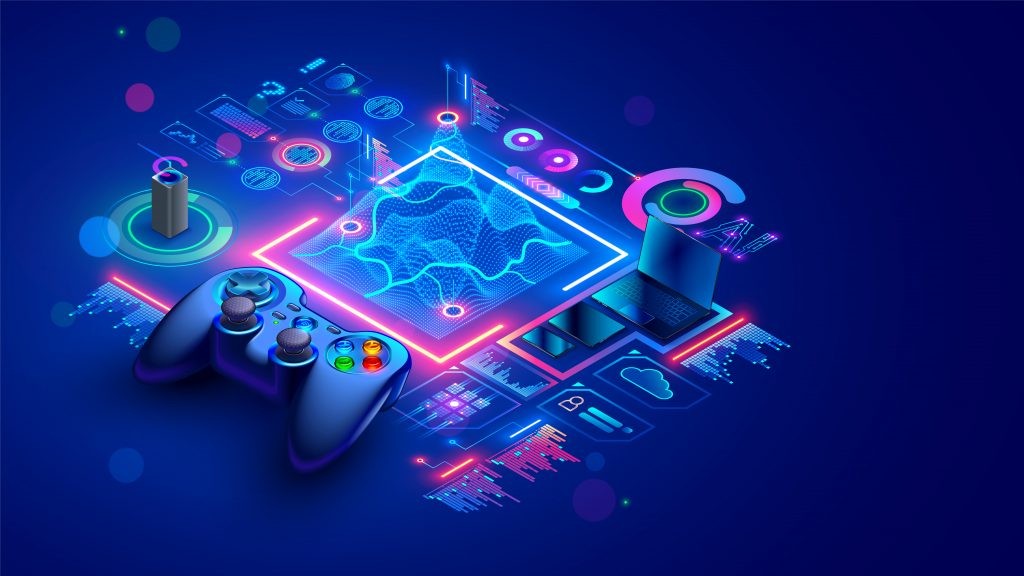Gaming, once considered a mere leisure activity, has transformed into a dynamic and influential industry that extends far beyond the confines of entertainment. This article delves into the multifaceted nature of the gaming industry, exploring the driving forces behind its growth, the economic impact it wields, and the symbiotic relationship between developers and the passionate gaming community. Unblocked Games 67
The Economic Engine of Gaming
The gaming industry has emerged as a formidable economic force, generating revenues that rival and, in some cases, surpass those of traditional entertainment sectors.
Global Revenues and Market Expansion
Globally, the gaming industry has witnessed exponential growth. With a diverse array of revenue streams, including game sales, in-game purchases, and advertising within games, the market size has burgeoned into the hundreds of billions.
Esports and Spectatorship
Esports, competitive gaming at a professional level, has not only become a global phenomenon but also a lucrative industry. Major esports tournaments attract massive audiences, both online and in-person, with significant prize pools and sponsorships contributing to the financial ecosystem.
Job Creation and Innovation
The gaming industry is a wellspring of job opportunities, from game developers and designers to marketing and support roles. Innovation is a constant as developers push the boundaries of technology, storytelling, and interactive experiences.
The Gaming Community: A Pillar of Support and Influence
At the heart of the gaming industry lies a vibrant and engaged community that plays a pivotal role in shaping the direction of games and the industry itself.
Influencer Culture and Content Creation
The rise of gaming influencers on platforms like Twitch and YouTube has transformed how games are discovered and experienced. These influencers, often gamers themselves, wield significant influence, shaping trends and contributing to a game’s success.
Community-Driven Development
Developers are increasingly adopting community-driven development models. Platforms like Steam allow developers to engage directly with players, gathering feedback and iteratively improving games post-launch. This collaborative approach fosters a sense of ownership among players.
Cultural Impact and Representation
Gaming has become a cultural touchstone, influencing and reflecting societal norms. The demand for diverse and inclusive representation within games has grown, prompting developers to create narratives that resonate with a broad spectrum of players.
Technological Frontiers: Shaping the Future of Gaming
Technological advancements continue to propel the gaming industry forward, opening new frontiers and possibilities for both developers and players.
Ray Tracing and Realistic Graphics
The advent of ray tracing technology has revolutionized in-game graphics, offering unparalleled realism in lighting, reflections, and shadows. Games like “Cyberpunk 2077” showcase the visual fidelity made possible by these advancements.
Cloud Gaming and Accessibility
Cloud gaming services, where games are streamed rather than downloaded, are transforming the landscape of accessibility. Players can enjoy high-quality gaming experiences without the need for expensive hardware, ushering in an era of inclusivity.
Virtual Reality (VR) and Augmented Reality (AR)
VR and AR are redefining how players engage with games. VR provides immersive experiences, transporting players into fantastical realms, while AR overlays digital elements onto the real world, as seen in games like “Pokémon GO.”
The Evolution Continues: Gaming in the Future
As we gaze into the future, the trajectory of the gaming industry is poised for even more profound transformations.
Blockchain and NFTs in Gaming
Blockchain technology and non-fungible tokens (NFTs) are making inroads into gaming, offering new possibilities for ownership and trade of in-game assets. This decentralized approach could reshape how players perceive and interact with virtual economies.
AI-Generated Content and Dynamic Narratives
The integration of artificial intelligence (AI) in game development is leading to dynamic narratives and procedurally generated content. Games can adapt to player choices, creating unique and personalized experiences, promising a future where each playthrough is distinct.
Cross-Platform Integration
Cross-platform gaming, where players on different devices can seamlessly play together, is becoming more prevalent. Games like “Fortnite” and “Rocket League” allow players on consoles, PCs, and mobile devices to share the same virtual space.
Conclusion: A Tapestry of Infinite Possibilities
The gaming industry, with its economic prowess, engaged community, and relentless innovation, stands as a testament to the limitless potential of interactive entertainment. As we navigate the uncharted territories of technological frontiers and societal shifts, the gaming industry continues to weave a tapestry of experiences that captivate and unite players across the globe.
In this ever-evolving landscape, the nexus of innovation and community will undoubtedly guide the gaming industry toward new horizons, where the boundaries between reality and the virtual realm become increasingly indistinguishable.

